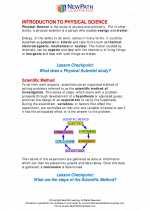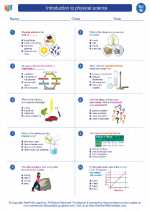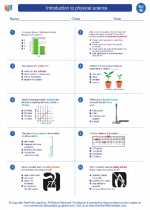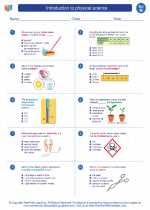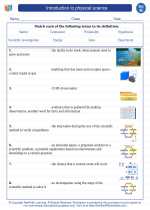Key Aspects of Observation
- Using the Senses: Observation involves using the five senses - sight, hearing, touch, taste, and smell - to gather information about objects and events.
- Objectivity: It is important for scientists to make objective observations, meaning they report what they actually see, hear, touch, taste, or smell, rather than what they expect or want to see.
- Qualitative and Quantitative: Observations can be qualitative, involving descriptions that do not involve measurements, or quantitative, involving measurements and numerical data.
How to Make Effective Observations
When making observations, it is important to follow certain steps to ensure accuracy and reliability:
- Focus: Concentrate on the object or event being observed and avoid distractions.
- Record: Take detailed notes or make sketches to document the observations.
- Compare: Compare and contrast your observations with those of others to ensure objectivity.
- Ask Questions: Use observations to generate questions and hypotheses for further investigation.
Examples of Observation in Science
Observation is a fundamental aspect of scientific inquiry and is used in various scientific fields:
- Biology: Observing the behavior of animals in their natural habitats.
- Chemistry: Noting the color changes that occur during a chemical reaction.
- Physics: Observing the motion of objects and the effects of forces.
- Astronomy: Using telescopes to observe and record the movements and characteristics of celestial bodies.
Study Guide for Observation
Here are some key points to remember when studying the topic of observation:
- Define observation and explain its importance in scientific research.
- Discuss the role of the five senses in making observations.
- Explain the difference between qualitative and quantitative observations.
- Describe the steps for making effective observations.
- Provide examples of how observation is used in different scientific disciplines.
